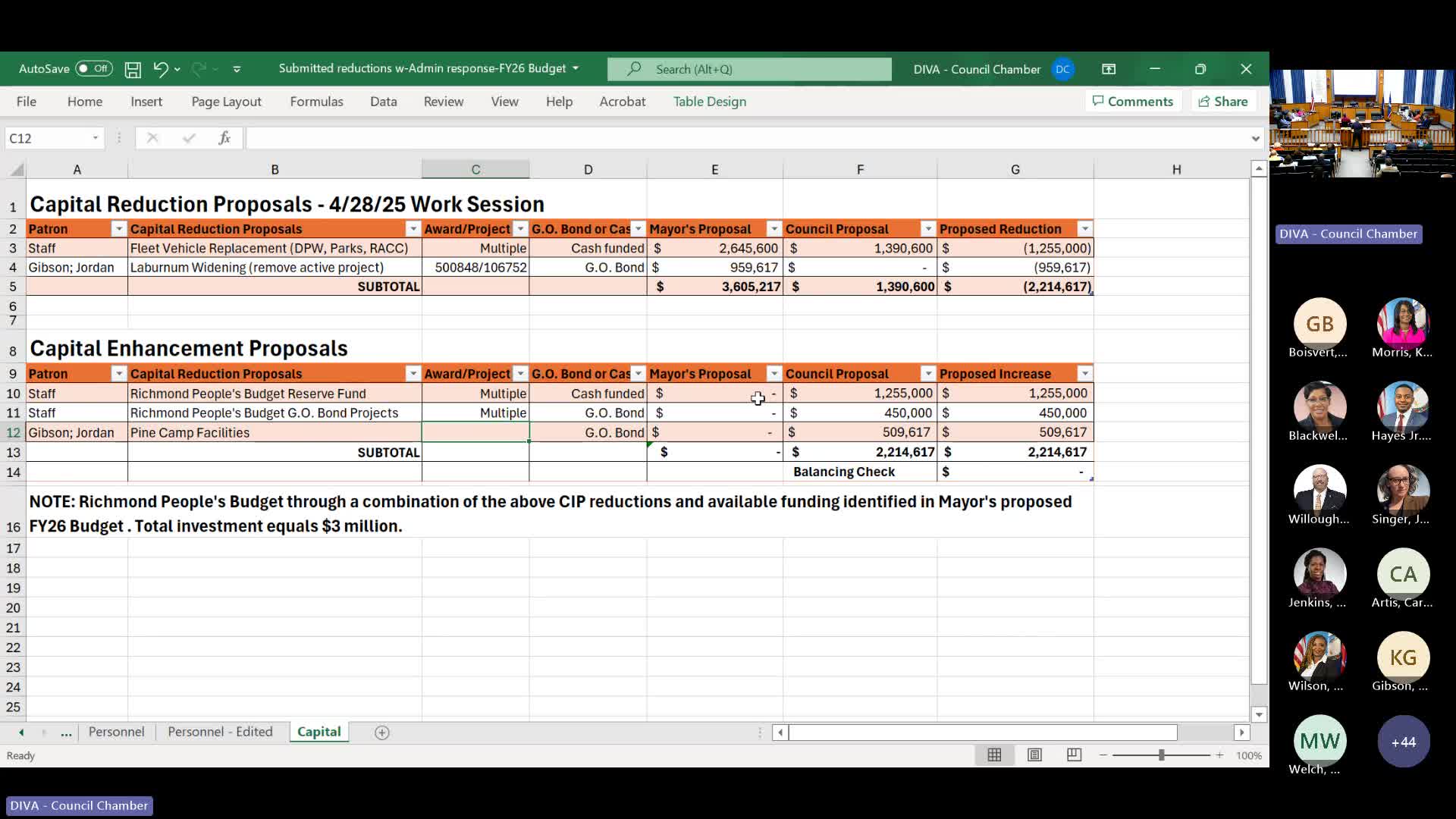Council Member Gibson proposes repurposing GO Bond funds for community projects
April 29, 2025 | Richmond City (Independent City), Virginia
This article was created by AI summarizing key points discussed. AI makes mistakes, so for full details and context, please refer to the video of the full meeting. Please report any errors so we can fix them. Report an error »

During the Richmond City Council's budget work session on April 28, 2025, discussions centered on the allocation of funding for various community projects, highlighting the distinction between cash-funded initiatives and General Obligation (GO) Bonds. This meeting was crucial as it set the stage for how the city plans to manage its financial resources in the coming years.
A significant point of discussion was the potential repurposing of funds from the Laburnum widening project, which has been deemed a lower priority by Council Member Gibson. The project still has $959,617 available, and Gibson expressed interest in redirecting these funds to better serve the needs of the Third District and support the community's budgetary goals. This move reflects a growing trend among council members to reassess and prioritize projects based on current community needs rather than previously established plans.
The council clarified the difference between the two funding types: GO Bonds are intended for long-term capital projects, typically lasting 20 years or more, such as school reconstructions and infrastructure improvements. In contrast, cash funding is more suitable for shorter-term projects, like installing benches at bus stops or creating public art in parks. This distinction is vital for ensuring that the city's investments align with its long-term strategic goals.
As the council continues to navigate its budgetary decisions, the implications of these discussions will resonate throughout the community. The focus on repurposing funds indicates a responsive approach to governance, aiming to meet the evolving needs of Richmond's residents. The next steps will involve further deliberations on how best to allocate these resources to maximize their impact on the community.
A significant point of discussion was the potential repurposing of funds from the Laburnum widening project, which has been deemed a lower priority by Council Member Gibson. The project still has $959,617 available, and Gibson expressed interest in redirecting these funds to better serve the needs of the Third District and support the community's budgetary goals. This move reflects a growing trend among council members to reassess and prioritize projects based on current community needs rather than previously established plans.
The council clarified the difference between the two funding types: GO Bonds are intended for long-term capital projects, typically lasting 20 years or more, such as school reconstructions and infrastructure improvements. In contrast, cash funding is more suitable for shorter-term projects, like installing benches at bus stops or creating public art in parks. This distinction is vital for ensuring that the city's investments align with its long-term strategic goals.
As the council continues to navigate its budgetary decisions, the implications of these discussions will resonate throughout the community. The focus on repurposing funds indicates a responsive approach to governance, aiming to meet the evolving needs of Richmond's residents. The next steps will involve further deliberations on how best to allocate these resources to maximize their impact on the community.
View full meeting
This article is based on a recent meeting—watch the full video and explore the complete transcript for deeper insights into the discussion.
View full meeting
